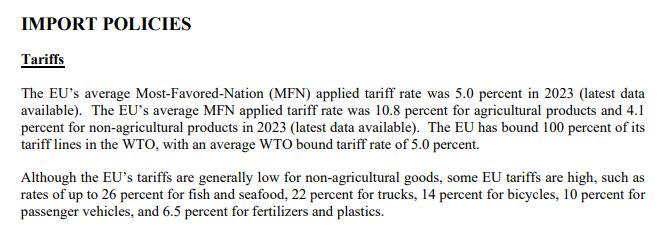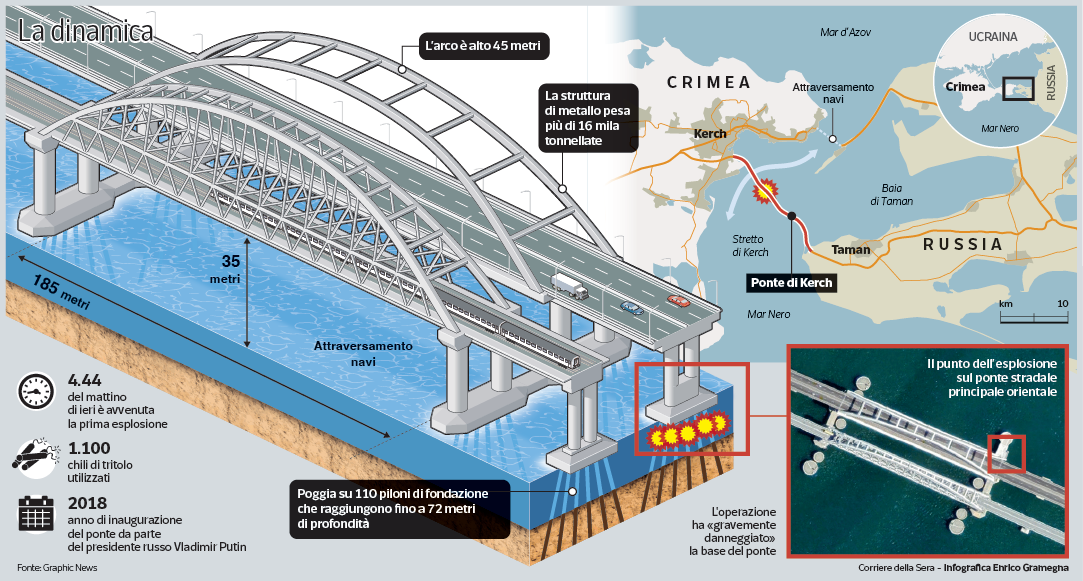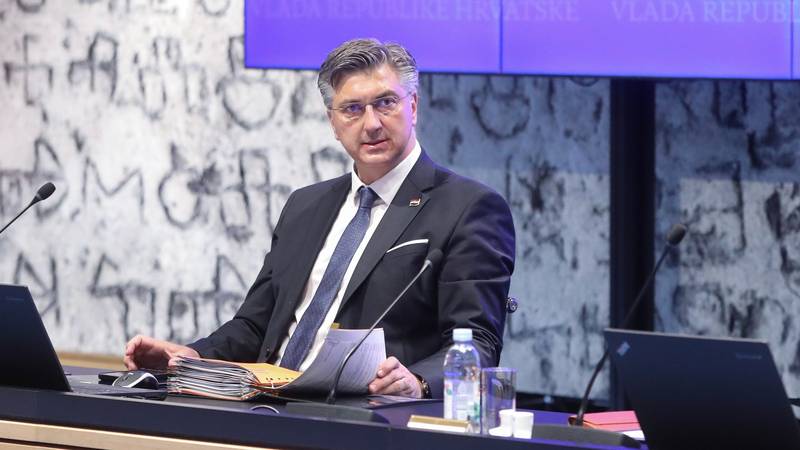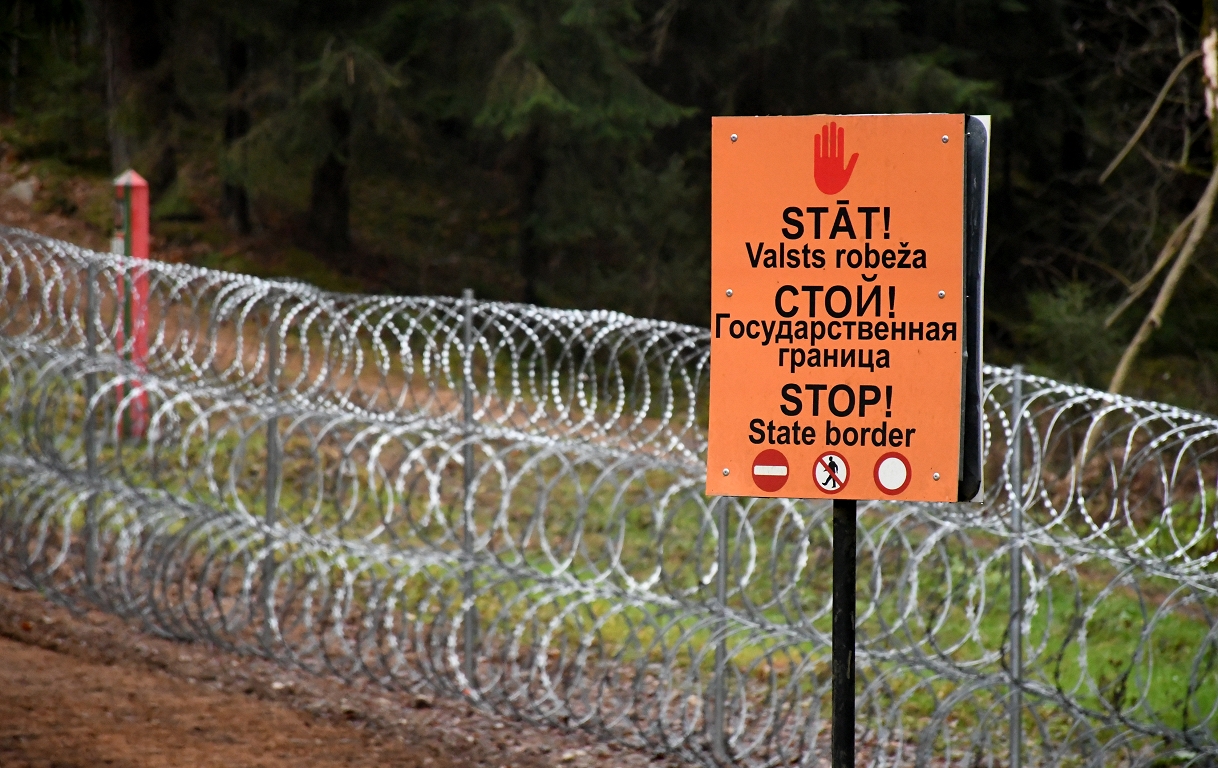The limits on GMOs, plastic, glyphosate: the regulatory « duties », that is, the EU rules, which Trump wants to break down

EU’s cheap duties are low, writes a Washington report. The average rate is 5%. Only 7 lines are dedicated to rates, to non -tariff barriers 40 pages
The real European « duties » that Trump wants to break down And against which he unleashed the commercial war? They are not so much the tariff onesi.e. taxes on imports that the US report indicates to 5% and not 39%, but the regulatory ones: i.e. the rules that Brussels imposes on everyone And that constitute a barrier for those who want to import products that do not comply with EU standards, whether they are environmental, health or safety. Any examples mentioned by the American report? GMOs, plastic and pesticides like glyphosate.
It is written black on white in a document entitled « foreign barriers to trade » (National Trade Estimate Report On Foreign Trade Barriers edited by the United States Raprescentive Trade) dated March 31, 2025, then two days beforeOfficial announcement of the US President April 2nd. And here it immediately emerges that The economic duties of the EU are low. « The average tariff rate applied to the most favored nation – reads – was 5% in 2023 (latest data available) « , in particular » 10.8% for agricultural products and 4.1% for non -agricultural products in 2023 « . So much Only 7 lines of the report are dedicated to the duties (« Tariffs »), while the « non-Barthiers », that is, the non-tariff barriers, are dedicated about forty pages of the document, which is almost 400 pages of analysis of economic relations between the United States with the main countries of the world.
GMOs
In particular, among the « non -tariff barriers », the report focuses on the finger at some EU regulations in the environmental and health issues that in fact constitute a barrier at the entrance of products that do not meet European standards regarding compliance, traceability, safety. Concern chemicals such as i pesticides, GMOs, packaging a which is required to have a percentage of recycled subject (for example plastic) and digital. « The United States – reads page 139 – continue to reiterate their concerns for delays in the approval procedures of biotechnology by the EU pursuant to the directive on genetically modified bodies (EC) 2001/18) and to engage the EU in the efforts to normalize the trade of these products « .
Glyphosate
In the paragraph dedicated to glyphosate, the report writes: « The EU requires that the approval of the active substance of a pesticide is periodically renewed ». In 2023, the EU reappeared the glyphosate, the herbicide used in some phytosanitary products, as an active substance until 15 December 2033. After the approval of an active substance in the EU, the Member States control the authorization of the formulated products that contain it. Member States have several regulations that limit the use of products containing glyphosate. Despite the renewal of the approval of glyphosate by the EU in 2023, some Member States continue to prohibit partially or entirely glyphosate, including Austria, Belgium, France, Germany, ItalyLuxembourg and Netherlands.
Packaging, the recycled plastic node
Another obstacle are the rules on the use of recycled materials. In January 2025, the EU published Regulation 2025/40 on packaging and packaging waste, which entered into force on 11 February 2025 and applied in general from 12 August 2026. « The regulation – reports the document on page 134 – imposes a minimum content of recycled material in plastic packaging And it requires that the recycled content recovered from post-consuming plastic waste complies with rigorous sustainability requirements if recycled in the EU. For the content of plastic recycled in a third country, recycling operators/systems must follow the same EU sustainability criteria ».
In summary of Europe, according to the US report, it places too many rules and standard also with regard to the circular economy.
Tremonti: « In the EU too many rules »
The report was cited by the Director of theAmerican Chamber of Commerce in Italy Simone collapses during the event «The Art of the International Deal. Preparing for as new trade was « which took place on April 2 in Assolombarda in Milan. Among the speakers there was also the former Minister of Economy Giulio Tremonti, today president of Aspen Italia, explained that « we must trust in those who manage the EU structures, but we must also understand that our future is to get out of a system of rules and enter a system that makes us even more competitive. Euries still continue to create rules today. The latest concern radioline, ice cream parlors and chopped, « said ironically.
The duties – said the Managing Director of Amcham Italy Simone collapsed – « are destined to be an economic tool, to restore breath to the US industry and economy and negotiatingto conduct the states with which the rebalancing of the commercial balance is designed to the table. It is a matter of understanding what will happen and imagine an answer that can allow Europe, and with it Italy, to have a relationship that also in the future remains mutually fruitful and respectful of the peculiarities of our economic ecosystems « .









